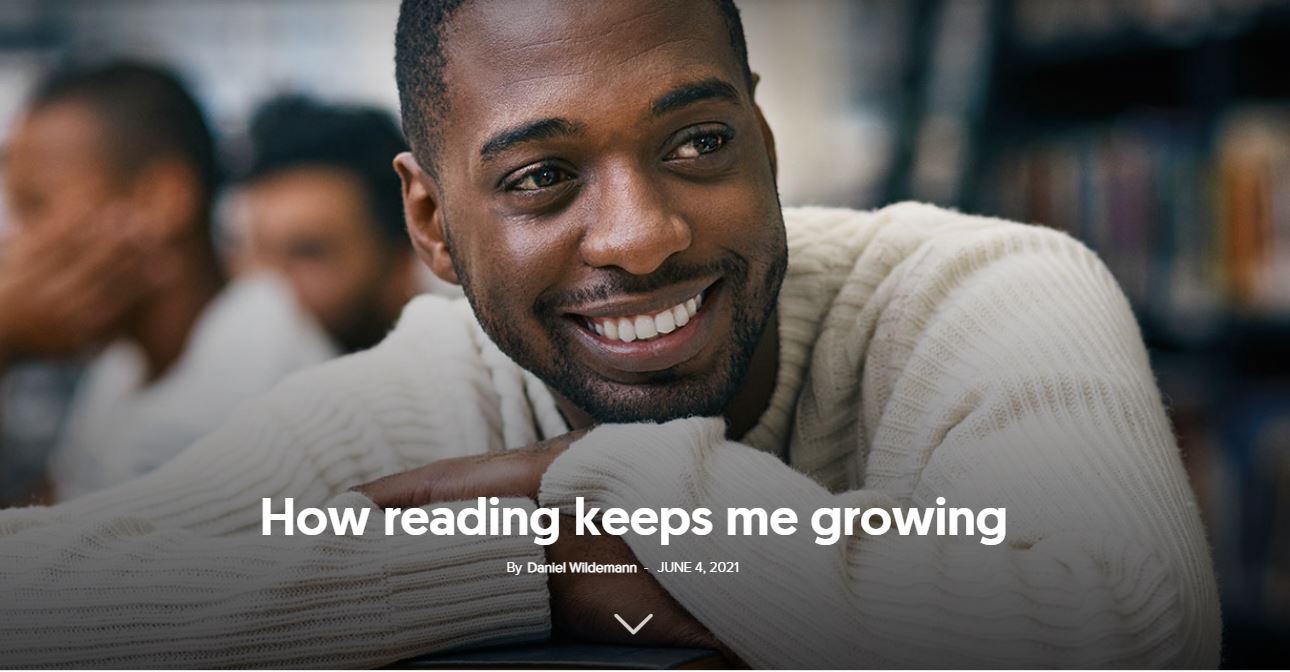In addition to my family of origin, as a child, I had the privilege of knowing valuable people in my life, mostly pastors and musicians, who would pay attention to me, teach me what they knew best, guide me towards a strong value system, and act as role models.
This is how my interest in foreign languages, science, and history was born. I came to appreciate classical music, I came to love nature, and hiking in the mountains. The example and guidance of the people I admired helped me make good life decisions and overcome certain limitations. One of these relationships went on for several decades and was an invaluable source of moral guidance and practical wisdom.
I will never forget the discussion in which this mentor warned me that I would certainly be sought out by security officers who would try to recruit me as collaborator. That conversation and the advice I received then opened my eyes and prepared me so well that I was able to successfully resist the insistent recruiting attempts. As time goes by, my soul is more and more grateful for all these priceless gifts.
Although I am more solitary by nature, I think I also passed on something of what was given to me. I think I helped a few people discover the emotional and intellectual richness that comes from listening to classical music. I helped people who had not had the privilege to love the mountains, like my wife, Adriana. I had the opportunity to guide a few people in lasting relationships, to discover the truths of the Bible, and make it the centre of their lives.
Some of the younger colleagues I have worked with have confirmed their leadership skills and have now taken on major responsibilities. I helped young people at crossroads, and families in crisis. Although I am happy about all this, I am aware that I have given back only a little of what I received. Neither when I received it from someone, nor when I gave it to others, was it exactly what the title of this article announces. Being a mentor means something more, something deeper. This involves exploring more personal territories.
Psychologist Urie Bronfenbrenner left us with this brief definition:
“A mentor is an older, more experienced person who seeks to further the development of CHARACTER and COMPETENCE in a younger person.” Urie Bronfenbrenner
Dr Bronfenbrenner devoted much time to examining mentors’ practices in Japanese culture, and found that the development of young people had been profoundly influenced by these human relationships between a young person and an adult who was not part of the family.
Dr Patty Alper, who has gathered her research and experience of over two decades into a book[1], believes that there are six underlying messages that are embedded in the relationship between a mentor and a disciple.
“If I could do it, you can do it too”. If conveyed directly, these words could ruin one’s chances of positively influencing a young person. But a mentor who becomes vulnerable and talks about their worries, mistakes, and failures sends out the message that the disciple too will have ups and downs, but will be able to enjoy success.
“I am here to help you; you can count on me.” A mentor has the patience and perseverance to return to the disciple even after a disappointing failure. Without any words, they say you can trust people.
“Here’s how I do it; now you try it too.” I often saw this method in action when I was taking violin lessons, and more recently, when I participated in a training program for hospital chaplains. It is more than a demonstration of the skills or competencies that need to be mastered. It is a nonverbal message that inspires courage, perseverance and a desire for development.
“No matter how challenging your questions are, they are welcome.” If the disciple is confident in expressing his troubling thoughts, they will not only clear up their doubts and fears that may later embarrass them, but will learn to interact with an adult in a way that is respectful, open and productive. They will know how to have a pleasant exchange of ideas, without hostility or mental reservations.
“For you, I am neither a judge, nor a boss, nor a teacher, nor a parent. I won’t be grading you and it’s not like I can cause you to fail or pass a class. This is a new form of relationship between adults. You can call me an adviser. When I discuss your ideas with you, you are free to reject my suggestions. Why? Because this is your project; I am only here to support and advise you.” The disciple thus learns a superior form of collaboration, is willing to report frankly on what they have done, and overcomes their desire to hide what does not make them look good. In the end, they make their own decisions and take responsibility for them.
By listening to them, the mentor tells his disciple, “You are important, I want to listen to what you have to say.” This commitment and the willingness to spend time together gives the young person self-respect, and it increases their motivation and trust.
I return to my own life. Looking back, I believe I have spent some time around people who manifested these attitudes and who could have mentored me in a richer way than it happened. I don’t think we capitalized on this potential as much as we should have.
Now I wonder what the explanations for this might be. Did I think I wasn’t living up to their expectations and thus not allow them to know me? I do realize that because of the life experience they had, they did see what I didn’t want them to discover anyway, and that didn’t change their attitude toward me. Did I develop the opinion that if they had really known me, they would have no longer loved or respected me? I think they’d seen enough flaws, but that didn’t make them hate me.
Perhaps I had picked up the idea that our thought and character problems should only be solved between us and God alone, which is ultimately true. However, an honest interaction with another person takes our flaws out of the shadows and brings them into the light, removing them from an imaginary, insignificant category (“That doesn’t matter that much!”). It leads to the recognition of the painful reality (“That will destroy me!”). It moves them from the category of superfluous wishful thinking (“I will deal with this at some point!”) to an important and urgent actuality (“This is my chance, before it’s too late”).
Only God knows what level my life would have reached and how fruitful my activity would have been if I had used the opportunities He gave me properly. Ultimately, the questions that show how honestly I treat my relationship with a mentor are: Do I really want to overcome this flaw? Do I really want to acquire this quality? In the absence of an unreserved personal commitment, there is no one else to force my change for the better.
When I examine the relationships in which I played the privileged role of mentor, I think there were some in which I trusted what I observed, as well as my moral discernment, so I overcame my reticence and had the courage to speak. Nevertheless, I regret the chances I lost in other relationships. I remember moments when I didn’t believe in someone’s desire or ability to make the necessary changes, so I kept quiet, and the damage made was complex and long-lasting.
I realize that it was my own judgment, not reality; that I cared more about my own emotional comfort and the illusion that I am a respectful and delicate person than about the need to take the risk and step in.
The apostle Paul had a keen sense of responsibility towards those to whom he conveyed the Christian message, which led him to write, “My dear children, for whom I am again in the pains of childbirth until Christ is formed in you…” (Galatians 4:19). And Jesus Himself, in a late discussion with the apostle Peter, gave him a mature task: “Feed my lambs” (John 21:15). The repetition of the commission (“sheep”) emphasizes its importance both for the disciples who needed healthy development and for the apostle, who wouldn’t have otherwise reached maturity.
You may also like:
It is an act of wisdom to recognize our need for a mentor. It is a blessing to find a person who conveys confidence, modesty, and perseverance. It is a privilege to recognize our calling as mentors, and to invest ourselves in this mission. The church and the society where these people come together will be richer for it.
Adrian Bocăneanu recalls his own experiences as a disciple and mentor and, evaluating them with a moving vulnerability, uses them as a starting point to analyse the main contributions of a mentor to their apprentice’s development and growth.




















